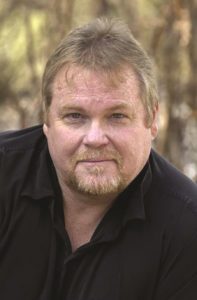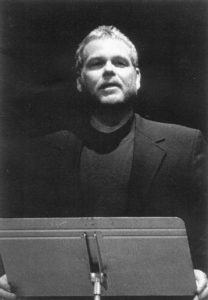When Michael Lee first saw Vietnam, he was stunned by the beauty of the place. “It reminded me so much of Ireland,” he said in a video interview for Nauset Regional High School’s “Witness to War” project.

After joining the Marines, training as a clerk (and an infantryman, as all Marines are), and then being retained on Okinawa for some months to teach scuba diving to fellow Marines, the idea of war seemed unreal to him. When he finally arrived in the country and saw the lushness of the mountain landscape, he thought he was “lucking out.”
But he soon learned he wasn’t when he was wounded on the day after Christmas. His subsequent exposure to Agent Orange made his initial sense of luck doubly ironic.
Michael Lee died on May 16, 2022, in Brewster after a long, complex illness. He was 76.
The jarring juxtaposition of beauty with sudden brutal reality characterized much of Lee’s published writing. In the opening story of his critically praised collection Paradise Dance, the narrator describes the fate of his brother, Jake: “It all ended for him in a sudden jangle when his patrol was ambushed just outside Khe Sanh on a January day in 1968.”
Jake had been leading an eight-man squad on patrol when he “was hit with a hot knurl of metal that bored into his left arm pit, tumbling and slashing a frightful path to his young heart.” For the narrator, and for Lee, “Things seemed much less important since that day.”
Lee, an only child, was born in Reading, Pa. to James and Jean Lee on Feb. 23, 1946. The Lees moved to Framingham where Michael finished high school. His parents had a summer cottage in Dennis.
Lee attended college intermittently over many years, earning an associate’s degree in journalism from Miami-Dade Junior College, a B.A. from the University of Massachusetts Dartmouth, and, in the 1980s, an M.F.A in writing from Emerson College.
As he explained in “Witness to War,” after high school he was given a football scholarship to attend Oklahoma State University. When he lost the scholarship and became eligible for the draft, he decided to join the Marines.
He had two reasons. His father had survived the battle of Guadalcanal in World War II, and, Lee said, “I knew they trained you well.”
Once in Vietnam, Lee was assigned to Khe Sanh, where, he said, “I had to turn my typewriter in for a machine gun,” as the base was under siege for 78 days. Lee was engaged in nearly continuous combat. “I remember,” he said, “five days before I came back from Vietnam, I was on a night ambush. Then, six or seven days later, I was cruising the bars in San Francisco.”
He brought back from the war both a sense of community and solidarity and invisible wounds that would work against any notion of comfort in community.
“I was angry about everything,” he told his high school interviewers, “and lived the typical PTSD lifestyle, you know, drinking, drugs, and outbursts of anger, not answering the phone, having nightmares.”
He lived for a few years in Key West, then in 1978 settled in Wellfleet, which he considered his hometown. Over the years, he worked as a shellfisherman, a chef, a teacher, and a writer. He “made great ribs” when he was running Bahama Mama’s with his wife, Kathy Selleck, in the early 1980s, said Ira Wood. But it was in his engagements as writer, reviewer, and teacher that he found a vocation and sustaining community.

Lee hosted a series of readings called “Night of New Works” at the Academy of Performing Arts in Orleans for many years. All writers were welcome, from published authors to high school students. Beth Seiser, a regular participant, said there was one basic rule: the piece had to be current, a work in progress.
Seiser met Lee when she took his adult education course in fiction writing at the elementary school in Wellfleet; she was the youngest in a group of mostly senior citizens. “I handed in embarrassing manuscript after embarrassing manuscript,” she said, “but he would find a nugget in each one, even if that nugget was only three words.”
After that course, Lee invited Seiser to join his weekly kitchen-table writing workshop. Over the decade that she participated, “No one ever left discouraged,” she said, partly because “he was an absolutely hysterical guy.” The one piece of Lee’s wisdom that remains most powerful in Seiser’s memory: “You just have to make friends with the fact that you’re a good writer.”
That’s what Lee himself was, a good writer, but whether he managed to make friends with that fact is anyone’s guess. As a Marine, he contributed to Stars and Stripes from Khe Sanh; he also wrote for the Framingham News, Cape Cod Times, and Cape Codder. He was a senior editor for the Cape Cod Voice, and his short stories appeared in Yale Review, Potpourri, Writer’s Digest, Northeast Magazine, the Boston Herald, and Fantasy & Science Fiction magazine.
Lee published three books, a poetry chapbook, Low Tide, writen with Eric Linder of Chatham’s Yellow Umbrella Books; the short story collection Paradise Dance, published by Ira Wood’s Leap Frog Press in Wellfleet; and In an Elevator with Brigitte Bardot, a collection of his best columns from the Cape Cod Voice, supplemented by eight longer essays.
Library Journal’s review of Paradise Dance called Lee “New England’s best kept literary secret” who “should have been recognized long ago.” His work calls to mind that of Andre Dubus and Raymond Carver, observed Publisher’s Weekly. Norman Mailer thought highly enough of it to provide this blurb for the cover: “Michael Lee’s short stories have a rare quality. They are tough, hard-bitten, and surprisingly sensitive to the nuances that motivate behavior in people we assume too quickly are without nuance.”
In 2011, it was reported that Lee had finished the first draft of a novel, Dancing Man.
Lee is survived by his wife, Julia Cataldo Lee of Orleans; his ex-wife, Kathleen Selleck; and two cousins, Rob Lee of Virginia and Katherine Lee Muir of Florida.
A funeral service with full military honors is planned at a yet to be determined date at the National Cemetery in Bourne.



